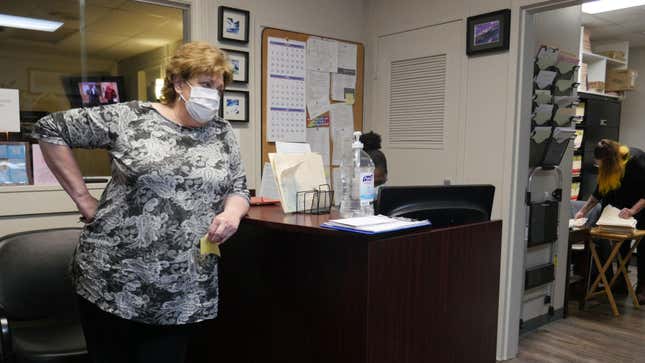Louisiana Abortion Provider Being Forced Out: ‘I Will Not Walk Away With a Whimper’
The state's only three clinics are being forced to relocate in the wake of a near-total abortion ban, and they're scrambling to come up with a plan.
AbortionPolitics

Hope Medical Group in Shreveport, Louisiana, is one of the state’s three remaining abortion clinics—all of which are being forced to leave the state now in the wake of Roe v. Wade being overturned. They don’t know yet where they’re going. But Kathaleen Pittman, the 65-year-old director of Hope Medical, told Jezebel she “absolutely refuses” to just shut the clinic’s doors and give up on trying to provide Louisiana women care.
“I will not walk away with a whimper,” says Pittman. “I don’t have it in me to quit at this point. I’m very close to retirement age, and I recognize that, but I think I have enough in me to get it started elsewhere.”
The tears have been flowing these past few weeks at Hope Medical. Volunteer clinic escort Debbie Hollis said she stopped by the abortion clinic this afternoon as staff was packing up boxes. “Everybody’s just tragically sad, not just because they are losing their jobs, but because of what’s going to happen in this state,” Hollis told Jezebel.
“It’s so emotional,” she continued. “A big part of everything that we’ve worked so hard on since the 1980s is just going to be gone. That source of help is going to disappear. We are all struggling to get used to the notion that we are somehow less than human under the law in the U.S.”
-

-

-

-

-

-

-

-

-

-

-

-

-

-

-

-

-

-

-

-

-

-

-

-

-

-

-

-

-

-

-

-

-

-

-

-

-

-

-

-








































